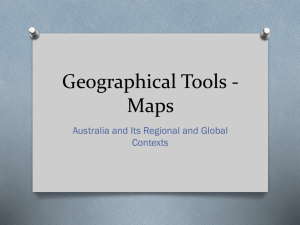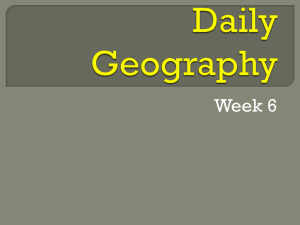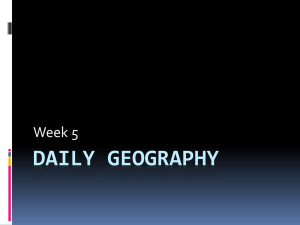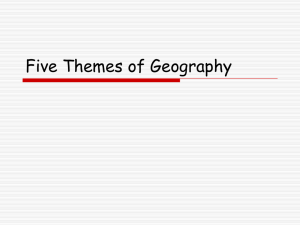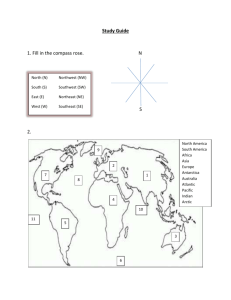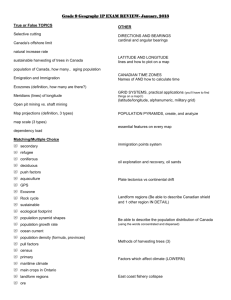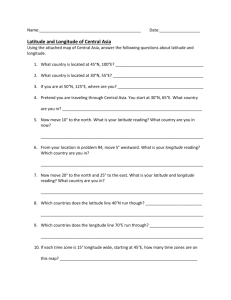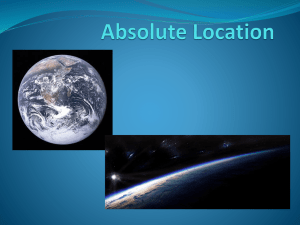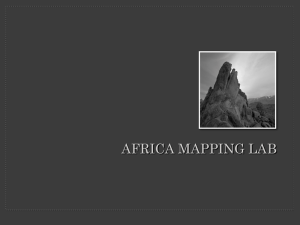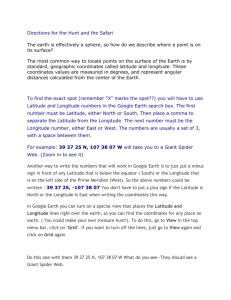Geographical Tools - Maps
advertisement
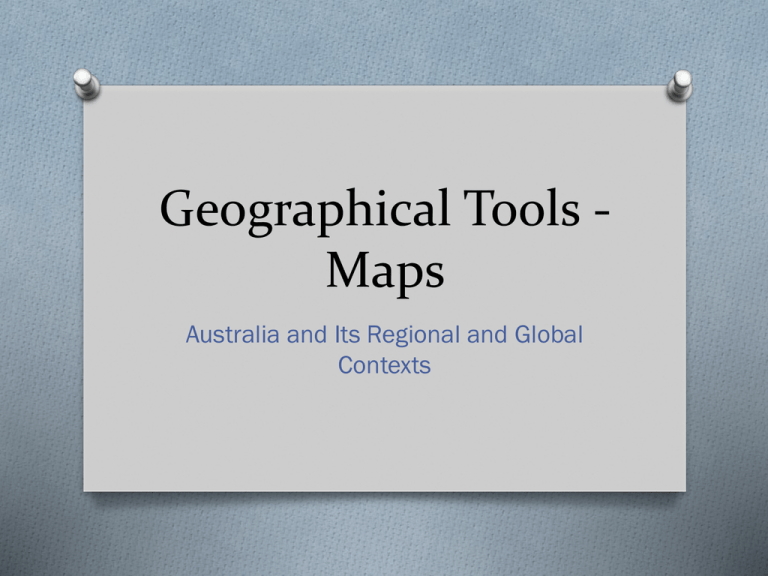
Geographical Tools Maps Australia and Its Regional and Global Contexts Syllabus Requirements O Use various types of maps and flow charts O Locate features using degrees and minutes of latitude and longitude O Describe and explain relationships on a map O Distinguish between large-scale and small scale maps Types of Maps Physical & Political Gazetteer & Road + Street Topographic & Thematic Use of various types of maps continued ACTIVITY 1. Study maps 1.3 to 1.10. Which ones might be used by someone studying: a) the weather b) physical features in the Northern Territory c) political boundaries? Locate features using degrees and minutes of latitude and longitude Map of Tasmania showing latitude and longitude Latitude and longitude activities using map of Tasmania Latitude and Longitude – Map of PNG Latitude and Longitude PNG Activity Describe and Explain Relationships on a Map – Exercise 1 ACTIVITY 1.Describe the location of the Australian fishing grounds shown in 1.55. 2.Refer to 1.59 a) Describe the spatial distribution of Australia’s uranium reserves. b) Name the former uranium mine located in South Australia. c) Name the uranium mine in the Northern Territory. Exercise 2 Large Scale and Small Scale Maps Scale Map Example Scale Map Example Activity Small and Large scale maps O Refer to 11.2, Skills master, 1.3 and 1.12 (the past three slides) O Which map shows the largest area? O Which map shows the smallest area? O Which map has the largest scale? O Which map has the smallest scale? O Rank the maps from the smallest to the largest scale
